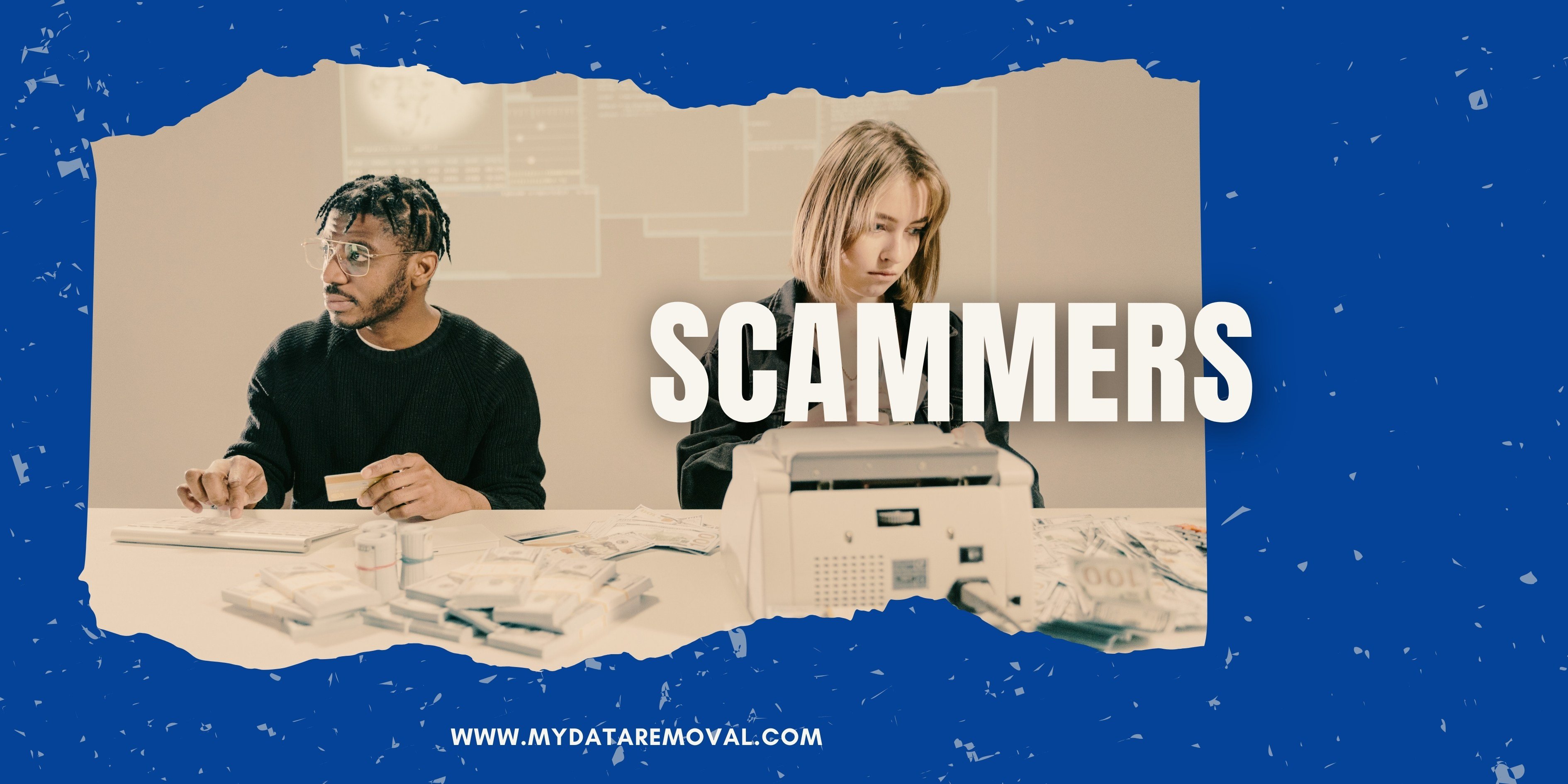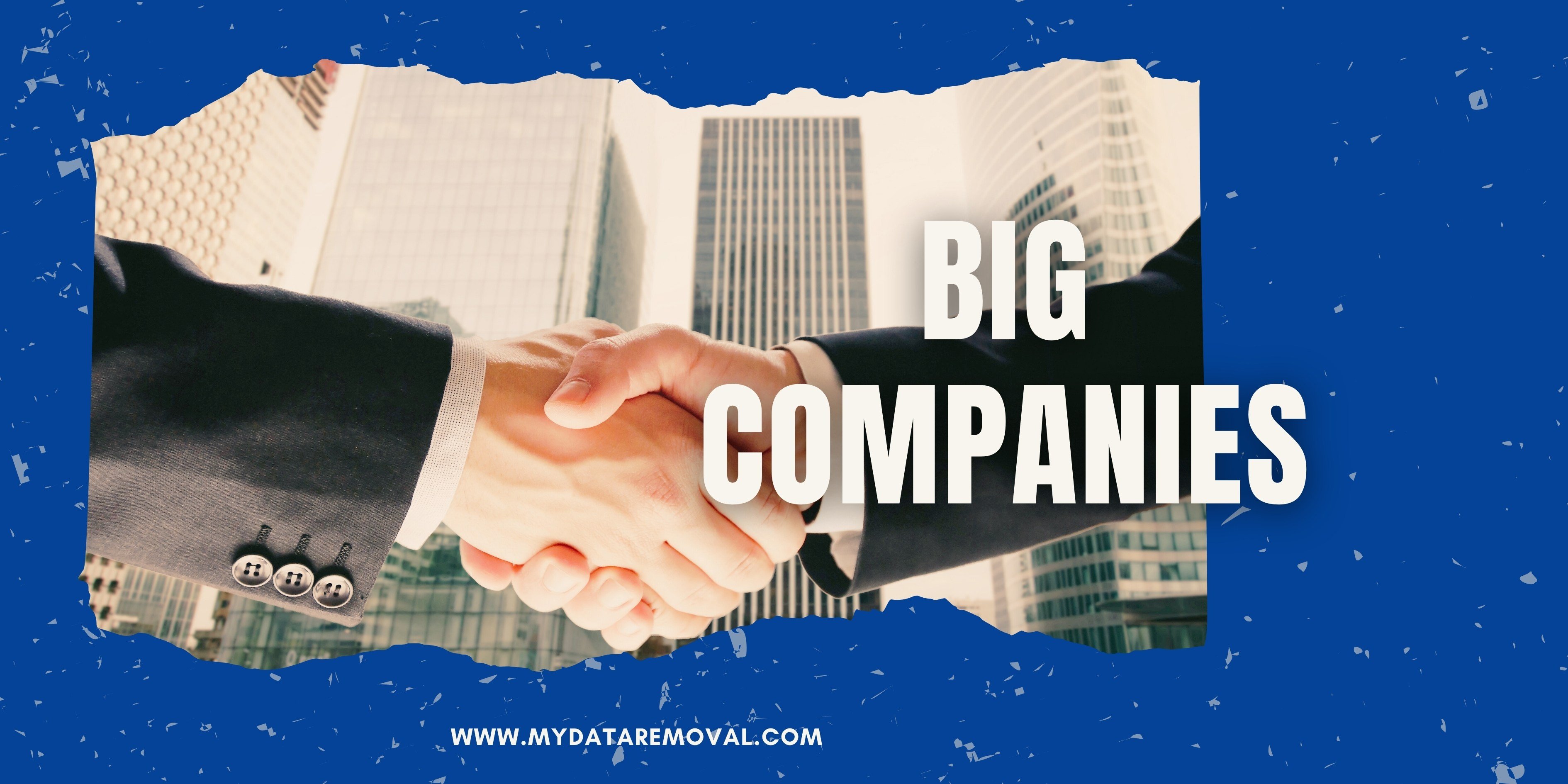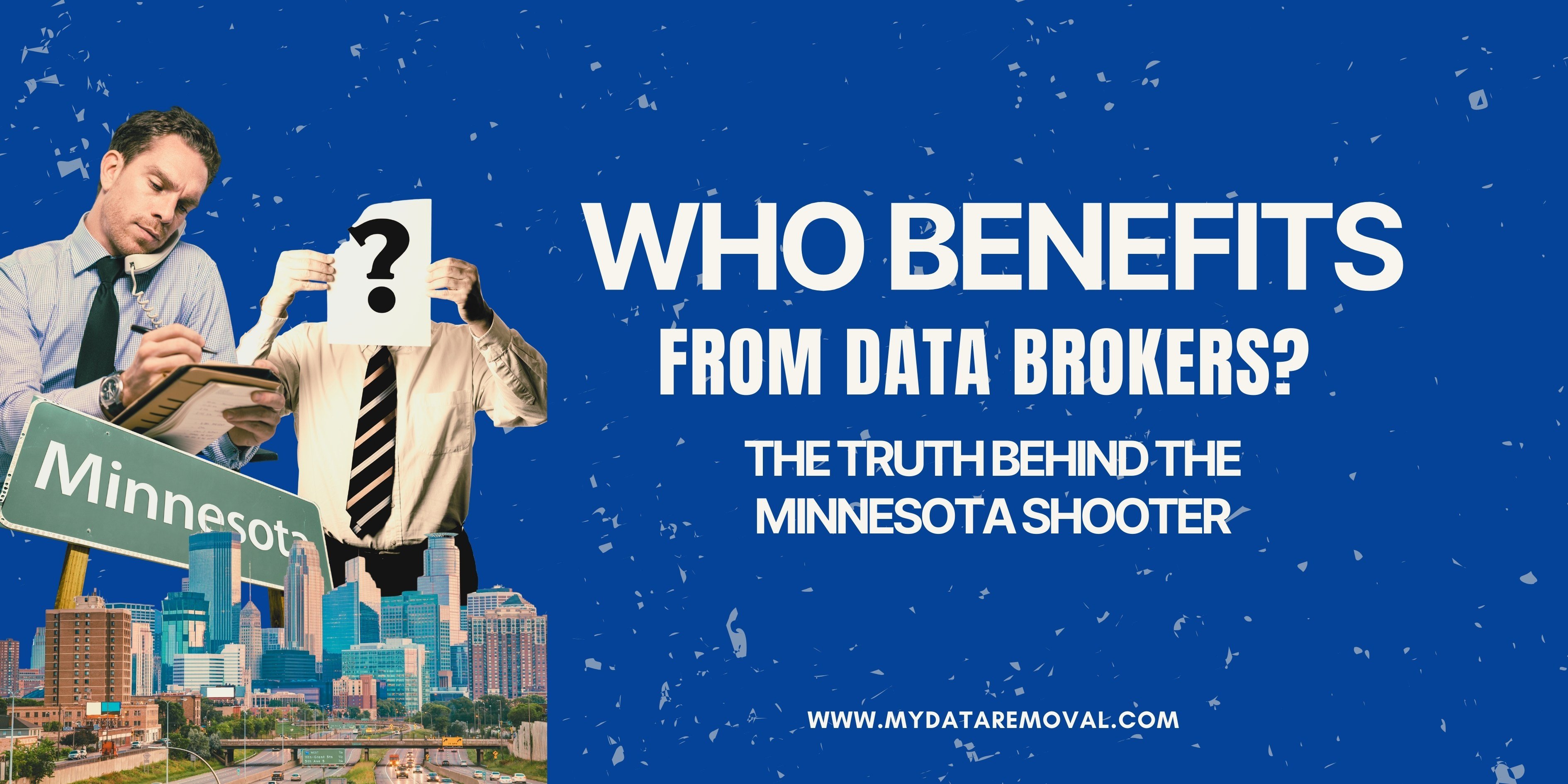Have you received a text that says, “I know where you live!”? But you shrugged it off, thinking that it's not real. What if I told you that it's not just an empty threat? And that someone out there, with bad intentions, really knows where you live?
Criminals, scammers, stalkers, big companies, and government agencies benefit from data brokers. The chilling case of the Minnesota shooter highlights the importance of data privacy and regulations on data brokers.
Here's the shocking truth: Anyone can find your home or work address online. That's mostly because of data brokers—companies that collect and sell personal information. According to the Electronic Privacy Information Center, there are thousands of data brokers in the United States.
Some examples of data brokers are Acxiom, Experian, and WhitePages. Many of these companies operate in the shadows. They trade every piece of information —from phone numbers, addresses, to online activity, and even your political views.
The Minnesota Shooter Who Used Data Broker Websites

Data brokers use your data for background checks, targeted ads, and financial services. On the other hand, bad guys can use it for their schemes. An example of that is the chilling case of a Minnesota shooter.
The suspect was Vance Boelter, 57 years old, from Minnesota.
In June 2025, Boelter fatally shot Melissa Hortman and her husband. Earlier that night, Boelster also shot state senator John Hoffman and his wife, according to authorities. The Hoffmans survived the attack.
The investigators searched Boelter’s SUV. They found notebooks with lists of over 40 state and federal public officials. Plus, the lists included addresses.
One of the notebooks listed 11 data brokers and people search websites that sell your information. One example is Spokeo. These people search sites help you find the following information:
- Past and present addresses
- Relatives
- Marital status
- Education level
- Phone numbers
According to the FBI, Boelter did extensive research and planning. With the use of data brokers, he was able to find information on the targets and their families. Plus, Boelter surveilled their homes prior to the shooting.
Boelter is now facing multiple charges of second-degree murder and stalking.
This case highlights the danger of having data brokers that collect and sell your data (how they can enable targeted violence). It also calls for stronger online privacy laws and regulations on data brokers.
And the sad thing is, it's not just shooters finding their targets’ addresses who are benefiting from data brokers. There are many more people and organizations using data brokers.
Others Benefiting From Data Brokers
Here are people and groups that love data brokers.
1. Scammers

Data brokers are one of the reasons why scammers can contact you. They just need to search for your phone number on people search websites. Next, you'll start receiving random calls.
Have you ever wondered how phishing scams are so personalized? That's because of data brokers, too. For example, when a scammer finds out about your shopping habits, they can impersonate the brands you're familiar with, making their messages more believable.
2. Stalkers

Remember that data brokers help others know about your address. Some data brokers even sell your geolocation and real-time location. This makes stalking a lot easier.
The worst part is, stalking doesn't only lead to physical harm or theft. It can also lead to psychological harm. Studies find that victims of stalking tend to experience intense fear, anxiety, depression, and posttraumatic stress disorder (PTSD). Some victims even reported missing classes or work.
3. Big Companies

Data brokers also sell your data to big companies, including marketing agencies, financial institutions, airlines, credit reporting agencies, and more.
While data sharing helps these companies, it can be a bad thing for us. For instance, marketing agencies receiving your data can lead to non-stop targeted ads. Plus, your data can affect your insurance, job prospects, and what prices you see.
Additionally, since these companies store huge amounts of customer data (data a company already has + data bought from data brokers), they become juicy targets for hackers. This leads to data breaches. Your data can be used for extortion or sold on the dark web.
4. The Government
Even government agencies buy consumer data. In a 2022 report, it was revealed that US intelligence agencies were buying data of Americans.
While government agencies can legally obtain data, they buy from data brokers instead. This is mostly because they want to avoid going through the process of obtaining court orders and legal warrants.
Some argue that this can help authorities. But for some, the concern is that the government is doing this without asking for consent.
2 Ways To Stop Data Brokers
Now that you know the risks of your data being collected by data brokers, it's time to know how you can protect yourself.
You can stop data brokers from collecting your data by opting out. This can be done in 2 ways:
- Manual Opt Out: You can manually opt out. This can take days to weeks for just one data broker. Here's how:
- Find the data broker that has your data.
- Visit their website and find the opt-out page.
- Fill out the opt-out form.
- Verify your identity (some ask for IDs).
- Submit and wait for the confirmation.
- Monitor regularly for data reappearance.
- Use MyDataRemoval Service: If you don't have the time or energy to do varied opt-out processes from hundreds of data brokers, you can try our service. We submit requests on your behalf, handle verification, and monitor for data reappearance. If your data reappears, we'll submit a request again. We also provide reports to let you know where your data shows up and how much we've already removed.
Conclusion
There's no doubt that data brokers should be regulated or stopped. But that seems impossible since nearly everyone is banking on personal data. For now, it's all up to lawmakers. All you can do to protect yourself is to stay aware and to opt out.
You can learn more about data brokers from our latest YouTube video.
Frequently Asked Questions
Why is data privacy important for businesses?
Data privacy is paramount not just because of compliance. Data privacy also helps improve brand value, build customer trust, prevent privacy rights violations, and foster the free flow of information.
How can data brokers track you?
Whenever you're online, a data broker is likely keeping track of your activity. Data brokers use cookies or tracking pixels. With these, they can get data from your social media, online retailers platforms, search engines you use, and websites you visit.



